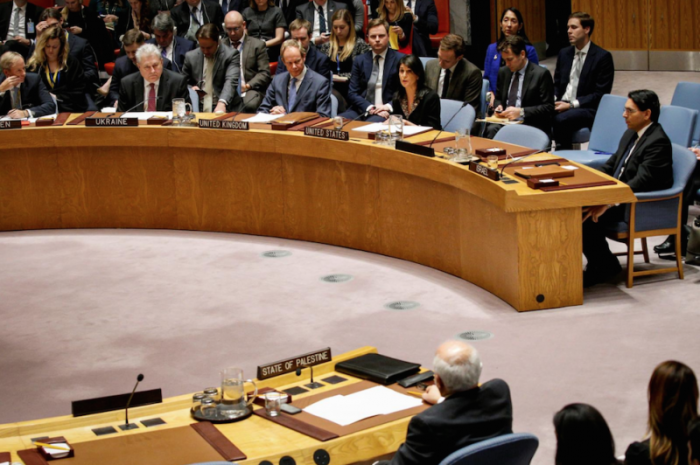Over 120 Countries Condemn Trump's Jerusalem Move in UN Resolution

More than 120 countries defied President Donald Trump on Thursday and voted in favor of a United Nations General Assembly resolution calling for the United States to drop its recognition of Jerusalem as Israel's capital.
Trump had threatened to cut off financial aid to countries that voted in favor. A total of 128 countries backed the resolution, which is non-binding, nine voted against and 35 abstained. Twenty-one countries did not cast a vote.
Trump's threat appeared to have some impact, with more countries abstaining and rejecting the resolution than usually associated with Palestinian-related resolutions. A spokesman for Western-backed Palestinian President Mahmoud Abbas called the vote "a victory for Palestine" but Israeli Prime Minister Benjamin Netanyahu rejected the vote.
Nevertheless, Washington found itself isolated on the world stage as many of its Western and Arab allies voted for the measure.
French U.N. Ambassador Francois Delattre said in a statement: "The resolution adopted today only confirms relevant international law provisions on Jerusalem. This vote must not divide or exclude."
Earlier this month, Trump reversed decades of U.S. policy by announcing the United States recognized Jerusalem as the capital of Israel and would move its embassy there.
Ahead of Thursday's vote, the United States said it was "singled out for attack" at the United Nations over Jerusalem, which holds Muslim, Jewish and Christian holy sites.
"The United States will remember this day in which it was singled out for attack in the General Assembly for the very act of exercising our right as a sovereign nation," U.S. Ambassador to the U.N., Nikki Haley, told the 193-member General Assembly.
"We will remember it when we are called upon to once again make the world's largest contribution to the United Nations, and so many countries come calling on us, as they so often do, to pay even more and to use our influence for their benefit," she said.
The status of Jerusalem is one of the thorniest obstacles to a peace deal between Israel and the Palestinians, who were furious over Trump's move. The international community does not recognize Israeli sovereignty over the full city.
The vote was called at the request of Arab and Muslim countries. The United States, backing its ally Israel, vetoed the resolution on Monday in the 15-member U.N. Security Council.
The remaining 14 Security Council members voted in favor of the Egyptian-drafted resolution, which did not specifically mention the United States or Trump but which expressed "deep regret at recent decisions concerning the status of Jerusalem."
Turkish President Tayyip Erdogan told the United States it could not buy Turkey's support in Thursday's vote.
"Mr. Trump, you cannot buy Turkey's democratic will with your dollars," Erdogan said in a speech in Ankara.
Among the countries that abstained on Thursday were Australia, Canada, Mexico, Argentina, Colombia, Czech Republic, Hungary, Poland, Philippines, Rwanda, Uganda and South Sudan.
Australian U.N. Ambassador Gillian Bird said Australia wanted to see the United States continue to play a leadership role in brokering peace and abstained from the vote because, "We do not wish to see any party isolated from the process."
"There is much in this resolution with which we agree," Bird told the General Assembly after the vote. "We do not, however, consider that this further resolution...helps bring the parties back to the negotiating table."





























